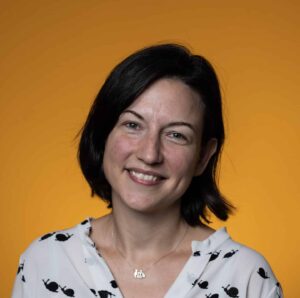To commemorate the 75th anniversary of the Universal Declaration of Human Rights, let’s make our words build new ways of seeing the world!
On 10th December 2023, we commemorate the 75th anniversary of the Universal Declaration of Human Rights, a monumental document proclaiming that we are all born equal in dignity and rights. This is a key moment to reiterate the promise of freedom, equality, and justice for all that permeates the Declaration. It is a unique opportunity to shape the future of human rights.
It is not enough to simply acknowledge what has gone wrong since the adoption of the Declaration. We must all take action to bring change, build new narratives and be part of the solution.
“On this day, we call on everyone to take one tiny step to change the way our world sees ageing and older people. Let us change the way we speak about older persons. Such narrative change is key for a rights-based approach to ageing. It is essential to challenge the negative stereotypes around older persons, and highlight their resilience, contributions, and potential."
Dr. Heidrun Mollenkopf, President of AGE Platform Europe
It’s time to feel good about ageing
Every time we speak we share our worldview. Words have power; when used over time, they become common sense or the default way we think about an issue. The words we use can influence how other people think and behave. Language must help us relate to each other, not reinforce bias, hostility, or even hatred.
“Let's rewrite the narrative on ageing. Each word, each action can reshape how we perceive and embrace the journey of growing older—erasing stereotypes, prejudice, and discrimination together."
Alana Officer, Unit Head Demographic Change and Healthy ageing and lead for the Global campaign to combat ageism.
“Under EU law, discrimination based on age is illegal, yet the ageist attitudes are still present. I call on public and private actors to help create an inclusive Europe with equal opportunities for all, regardless of their age.”
Ana Gallego Torres, Director General for Justice and Consumers at the European Commission
If we frame ageing as a problem, our response to it is likely to be based on fear and leave older people behind. If we frame ageing as an opportunity, then we are more likely to tap on older people’s potential to build common solutions for our societies.
Terms like ‘elderly’, ‘seniors’, ‘the ageing population’ are stigmatizing as they wrongly refer to homogeneous groups of people and the prejudices associated with them. We must be conscious that whenever we use those terms, we activate and reinforce the very ideas we aim to get away from. We often fall back on these concepts because they are familiar, but by doing so, we fail to see what is possible in this world. Such language obscures the individuals, their rights, diverse stories, preferences, and needs. It portrays older people as ‘others’ disregarding their potential and contributions. It runs against the declaration’s shared values of equality, freedom and justice.
Anyone can help build a new narrative that will push for change. In everyday interactions and social media, we can ask ourselves whether the way we speak about ageing and older persons reinforces biases or contributes to a hopeful, compassionate and empowering narrative.
Become part of the movement
We are all influencers. We can all help build new ways of seeing the world. Let’s make our words a tool for everyday activism. By promoting positive narratives, we can create a more inclusive society. By fighting our own biases, we can all live happier, longer and healthier lives.
What will you do today?
- You can start by changing your vocabulary: move away from talking about ‘the elderly’, ‘frail’ or ‘dependent’ older people. Instead, try neutral phrases, like ‘older persons’. (*)
- Share what old/ageing mean for you creating positive associations that will help us debunk myths about ageing and older people. Post your stories on social media by using the hashtag #AgeingEqual.
- We are all ageing…constantly. To shift mindsets about ageing, you can copy Dave Martin, who is greeting friends and colleagues with the following enquiry: ‘How are you ageing today?’
- Share your story: what words do you use in your own language to talk about ageing and older people? Are these words reiterating biases or are they celebrating ageing? If you could use only one word or invent a new one to describe ageing what would it be? What are you doing today to change the way our world sees ageing and older people? Let us know here.
On the 75th anniversary of the Universal Declaration of Human Rights, be the leader you are looking for: Stand up for human rights!
(*) For more ideas see:
Contact








